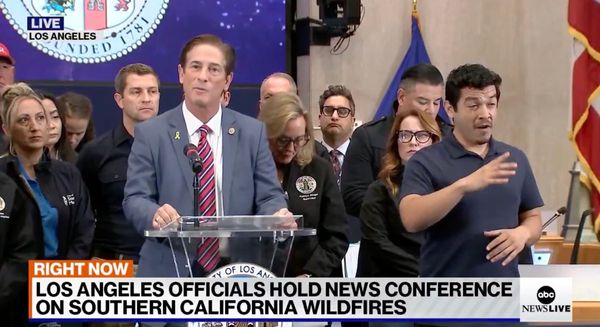
Today Labor will introduces amendments to the Migration Act to criminalise breaching bridging visa conditions, a direct response to the recent High Court decision that found indefinite immigration detention unlawful.
This week 83 people, some found guilty of serious crimes, were released after the decision. Immigration Minister Andrew Giles and Home Affairs Minister Clare O’Neil said: “The government will introduce and seek to pass this legislation … to further respond to the High Court’s decision.”
This all came after Opposition Leader Peter Dutton’s attempt to link the release of “hardcore criminals” to a breakdown of “social cohesion” and a rise in anti-Semitism. The introduction of legislation to effectively overrule a court decision is, as it turns out, a staggeringly common one, particularly when it comes to immigration.
As constitutional expert George Williams bracingly put it to Crikey a while back: “The courts have never had great capacity to hold the executive in check. It’s the culture of the system.”
Legislative fixes
The clearest example of what governments are willing (and able) to do is demonstrated by what’s known as the M68 case. A Bangladeshi woman — known as Plaintiff M68 — was transferred from Nauru to Australia to receive urgent medical attention late in her pregnancy. While in Australia, she gave birth. With the help of the Human Rights Law Centre (HRLC), she brought this case against the immigration and border protection minister, the Commonwealth, and Transfield Services in an effort to prevent being returned to Nauru. The HRLC argued “her past detention was unlawful by reason that it was not authorised by any valid law of the Commonwealth nor based upon a valid exercise of the executive power of the Commonwealth”.
The government promptly amended the Migration Act, adding section 198AHA, which in staggeringly broad terms authorised the Commonwealth to “take, or cause to be taken, any action in relation to the arrangement or the regional processing functions of the country” and “do anything else that is incidental or conducive to the taking of such action”. The section purported to have retrospective affect to 2012.
Both sides of politics are very happy to push through changes of this sort. As Daniel Webb who led the M68 challenge told The Saturday Paper:
I don’t think we’ve ever seen a piece of legislation like this in Australia — retrospectively authorising three years of detention of thousands of innocent people in the middle of a case in our highest court. What’s almost as incredible as the law itself is how quickly it just sailed through our Parliament with bipartisan support. Opposition leader Bill Shorten said at the time it took him ‘not more than 10 seconds’ to decide what to do. I only wish he’d spent those 10 seconds thinking about the 37 babies and 54 children whose lives he was helping sign away.
The High Court’s conclusion, ruling that the government’s actions were justified not that “the plaintiff’s central claim (that the Commonwealth and the minister acted beyond the executive power of the Commonwealth by procuring and enforcing her detention at the regional processing centre between March 24 2014 and August 2 2014) to have been well-founded until 30 June 2015, when S198AHA was inserted with retrospective effect”.
Overruled? You’re overruled!
But who can be bothered going to all the trouble of getting some laws together — what if they’re so draconian your usually supine opponents can’t meekly wave them through (such as the border protection bill introduced the same day as the Tampa breached Australian waters in 2001)? There are plenty of other options.
In 2017, roughly 100 asylum seekers who had come to Australia from offshore detention to seek medical treatment and then gained court injunctions preventing their return, were issued with a new visa called “final departure bridging E visa”, which gave them three weeks’ notice that they were to be evicted from their accommodation and have their $300 a fortnight benefit ceased.
With the powers available to the minister, you can simply respond to a court case saying you can’t do something by just straight up doing the same thing — like the Federal Court overturned a decision to cancel two men’s visas and then Dutton waited 43 minutes before cancelling them again.
Sometimes we agree
But it’s not all conflict between the courts and government.
In November 2001, the High Court abruptly brought a case questioning the legality of the government’s handling of the Tampa affair to a halt. By refusing to consider an appeal from a split decision of the full Federal Court, which had upheld the lawfulness of the detention and expulsion of the Tampa refugees, the court “effectively sanctioned the federal government’s continued use of military force to remove asylum seekers from territorial waters and transport them to detention camps on remote Pacific islands”.
Then in 2015 the High Court held by a narrow majority that the detention of a Sri Lankan asylum seeker intercepted en route to Australia was lawful under the Maritime Powers Act.
Is it about time governments of both persuasions showed the courts some respect? Let us know by writing to letters@crikey.com.au. Please include your full name to be considered for publication. We reserve the right to edit for length and clarity.







